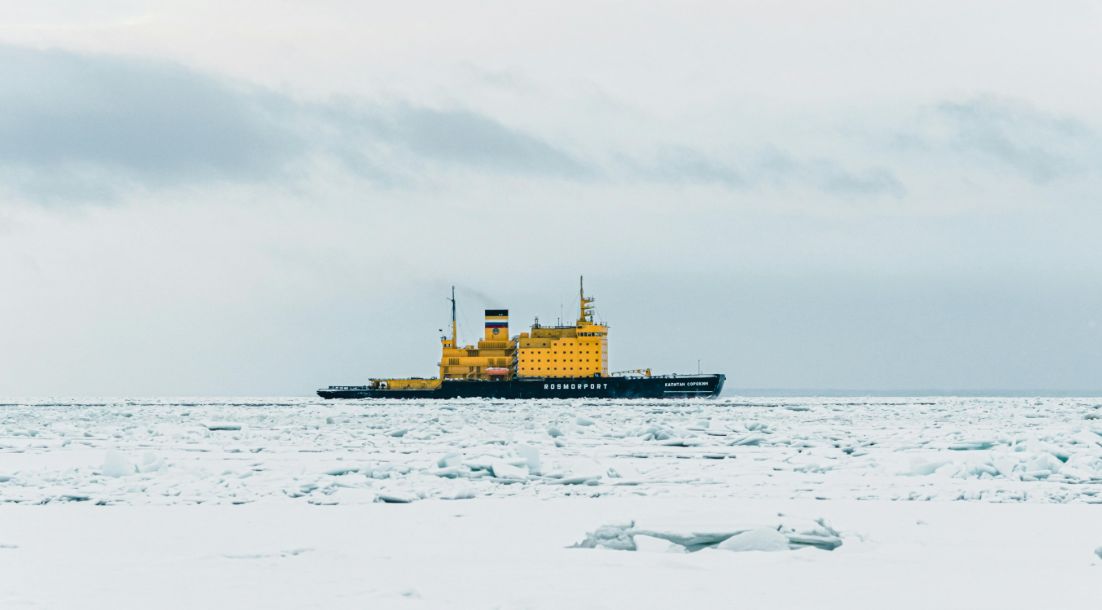Now Reading: Past estimates missed true scope of EU shipping’s Arctic climate impact, report says
-
01
Past estimates missed true scope of EU shipping’s Arctic climate impact, report says
Past estimates missed true scope of EU shipping’s Arctic climate impact, report says

Report: Previous assessments underestimated EU shipping’s impact on Arctic climate
A recent study suggests that the climate impact of European shipping in the Arctic region may be more significant than previously thought. Past estimates focused only on EU-flagged vessels, leading to an underestimation of the true scope of the impact.
The study, titled “Black carbon and CO2 emissions from EU-regulated shipping in the Arctic,” conducted by the International Council on Clean Transportation (ICCT), revealed that black carbon emissions in the region nearly doubled between 2015 and 2021. A substantial portion of these emissions came from ships traveling to and from EU ports.
The findings indicated that EU-regulated vessels of at least 5,000 GT emitted 52 tonnes of black carbon, which accounted for 23% of total emissions. This amount was almost twice the 27 tonnes emitted by EU-flagged ships. In the Arctic region regulated by the International Maritime Organization (IMO), 49% of the 564 ships of 5,000 GT or more reported to the EU MRV, while only 20% flew an EU flag.
Overall, EU-regulated vessels emitted 317 tonnes of black carbon and 1.9 million tonnes of CO2 in the broader Arctic region, representing 44% and 60% of emissions from similar-sized units. In comparison, EU-flagged vessels contributed 145 tonnes of black carbon and 726,000 tonnes of CO2, which made up 20% and 23% of the emissions, respectively.
The study highlighted that Norway-flagged vessels burned the most fuel by mass in the Geographic Arctic in 2021, while Russia-flagged ships burned the most in the IMO Arctic. The European Union has committed to addressing these emissions as part of its broader climate strategy for the Arctic.
The ICCT emphasized the need to account for all EU-related shipping emissions, regardless of flag, to accurately assess the environmental impact. They proposed measures such as including black carbon emissions in the EU MRV database, recognizing black carbon as a significant climate pollutant, and replacing residual fuel with distillate to reduce emissions.
Black carbon emissions, originating from incomplete combustion in marine engines, have a significant impact on climate change, particularly in the Arctic due to the albedo effect. The study highlighted the urgency for regulatory bodies and governments to take action to reduce black carbon emissions from maritime transportation in the Arctic.



